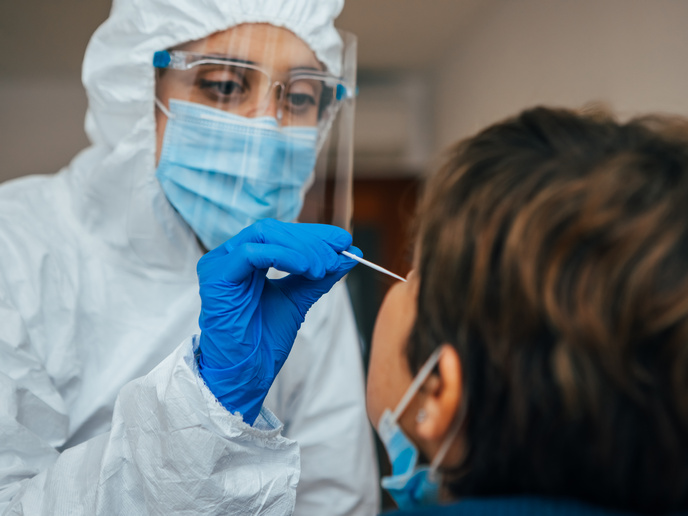New vaccine candidate for Chagas disease shows promise
Chagas disease is an infection affecting people in 44 countries. It is caused by Trypanosoma cruzi (T. cruzi), a parasite transmitted to humans via a triatomine bug, commonly known as the ‘kissing bug’. If left untreated, the disease can cause serious health problems, including heart damage and neurological and digestive problems. In some cases, it can even be fatal. Unfortunately, treating Chagas is easier said than done. “Drugs are truly active during early infection, which has mild symptoms that typically remain unnoticed until the disease becomes chronic,” explains Carlos Guzmán, a researcher at the Helmholtz Centre for Infection Research(opens in new window) (HZI). “Even if caught early, the treatment is long and often associated with severe adverse events.” This is why the EU-funded CRUZIVAX(opens in new window) project set out to develop a vaccine candidate against T. cruzi. “Our main goal was to advance an innovative needle-free candidate in the vaccine development pipeline,” adds Guzmán, who serves as the project coordinator.
Vaccine offers superior protection against infection
The proposed vaccine is based on a structure-engineered trivalent chimeric antigen that lacks immune decoy sequences. The antigen was developed by Emilio Malchiodi from the University of Buenos Aires(opens in new window) (website in Spanish), who co-coordinated the project. The vaccine also uses an HZI-proprietary mucosal adjuvant that promotes self-limited, locally restricted immune activation stimulating humoral and cellular immunity. “This strategy stimulates the complex immune effector mechanisms required to fight the parasite, reduces the risk of adverse events, increases vaccine acceptance, and promotes superior protection against infections transmitted across the mucosa,” explains Guzmán.
Testing vaccine’s ability to prevent and treat Chagas disease
The project conducted preclinical studies on various vaccine formulations to assess their ability to prevent or treat the disease. “This approach ensures that the vaccine not only prevents new cases but also can be used to provide effective treatment to those patients who already have a chronic form of the disease,” notes Guzmán. The vaccine’s therapeutic potential was evaluated both alone and in combination with antiparasitic drugs.
A valid alternative for Chagas patients
As to its preventative potential, researchers found that the vaccine protected against infection with rapid clearance of the parasite, reduction of clinical symptoms and prevention of heart damage. In terms of its ability to treat the disease, when used in infected animals with early chronic disease and in combination with antiparasitic drugs, the therapeutic vaccine reverted pre-existing electrocardiographic alterations and normalised those enzymes indicating myocardial damage. It also reduced parasite loads, inflammatory infiltrates and fibrosis in tissues to a larger extent than standard drugs. “By increasing the efficacy of existing drugs, our vaccine has the potential to offer a valid alternative for Chagas patients, one that can both prevent and treat the disease,” says Guzmán.
Paving the way towards an effective vaccine
In addition to the preclinical studies, the project identified potential biomarkers and correlates of protection that can be explored in future studies. Furthermore, CRUZIVAX established a good manufacturing practice (GMP) conforming antigen manufacturing process, produced a GMP-grade adjuvant, assessed the stability of the vaccine product, and conducted good laboratory practice-conforming preclinical toxicology studies. “Together with the scientific advice provided by the regulatory authorities, this work paves the way towards the clinical development of an effective T. cruzi vaccine,” concludes Guzmán.







